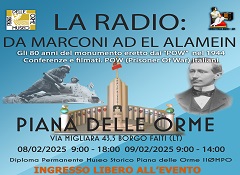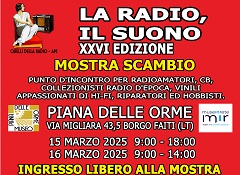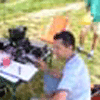Global Simulated Emergency Test 2015
Sunday, 06 December 2015 22:11
Written by Greg Mossop
Since 2006 the International exercises organised by IARU Region 1 have concentrated on testing between countries using the emergency centre of activity frequencies defined in the band plans, and passing formal messages across language barriers.
Some countries are very involved in emergencies but have not been able to take full part because of timing or their distance from other countries.
Following the Nepal Earthquake earlier this year, a new test is required to demonstrate that Amateur Radio is able to respond quickly to an emergency. GlobalSET 2015 will take place, but with a focus on our organisation rather than on how easily groups can set up field stations.
We announce that between 12-22nd December, the IARU Regional Emergency Communications Co-Ordinators will trigger a call out exercise in their region. The exact time will depend on the Regional co-ordinators and may not be a weekend as disasters can occur at any time.
We will use whatever means considered appropriate to ask the IARU Member Societies and Groups known to be active in emergency communications to contact their members and ask them how quickly they could get on air if required.
There is a time limit of 24-48 hours to complete their local call out exercise and submit their results through a web form which will make the results far easier to produce than earlier years.
By using a web form it is hoped that any language barriers are removed as online translation tools can be used to convert this into their local language to make it easier to fill in. The web address will be given when the exercise starts and information will be gathered by each region separately.
No one is expected to get on air, so the exercise is independent of any HF propagation problems.
The aims of the exercise are;
To show that we can respond quickly and in a co-ordinated manner.
To get groups and societies involved in an event without language, time or propagation barriers.
To update our information about how many radio amateurs around the world are available for emergency communications showing our strength in the hobby.
Some countries have large ( >1500 member ) emergency communications groups, in these cases being able to demonstrate that a significant number of members would be available is a success.
More information will be circulated to National Emergency Communications Co-Ordinators soon.
Written by Greg Mossop
Since 2006 the International exercises organised by IARU Region 1 have concentrated on testing between countries using the emergency centre of activity frequencies defined in the band plans, and passing formal messages across language barriers.
Some countries are very involved in emergencies but have not been able to take full part because of timing or their distance from other countries.
Following the Nepal Earthquake earlier this year, a new test is required to demonstrate that Amateur Radio is able to respond quickly to an emergency. GlobalSET 2015 will take place, but with a focus on our organisation rather than on how easily groups can set up field stations.
We announce that between 12-22nd December, the IARU Regional Emergency Communications Co-Ordinators will trigger a call out exercise in their region. The exact time will depend on the Regional co-ordinators and may not be a weekend as disasters can occur at any time.
We will use whatever means considered appropriate to ask the IARU Member Societies and Groups known to be active in emergency communications to contact their members and ask them how quickly they could get on air if required.
There is a time limit of 24-48 hours to complete their local call out exercise and submit their results through a web form which will make the results far easier to produce than earlier years.
By using a web form it is hoped that any language barriers are removed as online translation tools can be used to convert this into their local language to make it easier to fill in. The web address will be given when the exercise starts and information will be gathered by each region separately.
No one is expected to get on air, so the exercise is independent of any HF propagation problems.
The aims of the exercise are;
To show that we can respond quickly and in a co-ordinated manner.
To get groups and societies involved in an event without language, time or propagation barriers.
To update our information about how many radio amateurs around the world are available for emergency communications showing our strength in the hobby.
Some countries have large ( >1500 member ) emergency communications groups, in these cases being able to demonstrate that a significant number of members would be available is a success.
More information will be circulated to National Emergency Communications Co-Ordinators soon.



 . . . . . . . . . . .
. . . . . . . . . . . 







